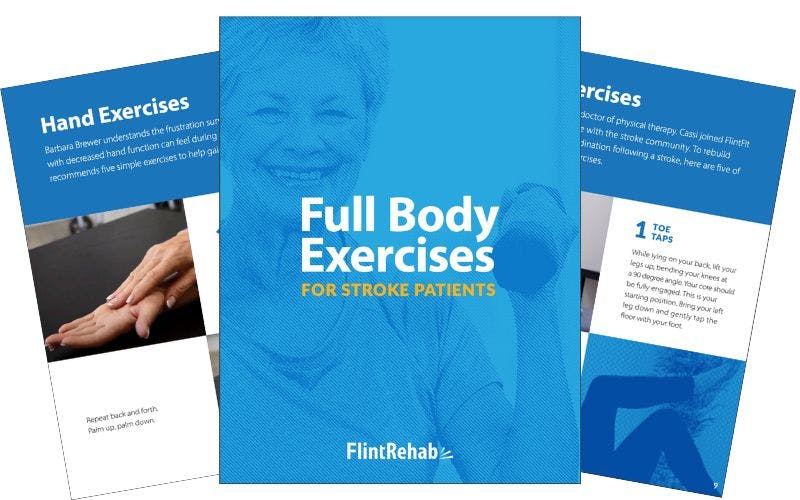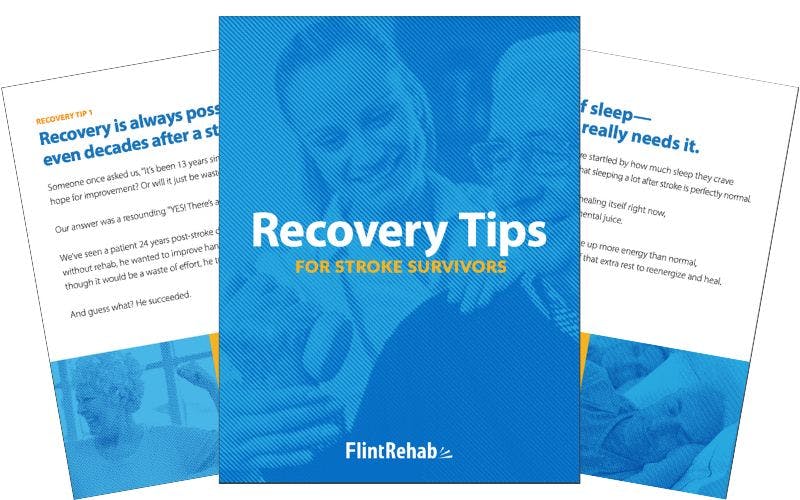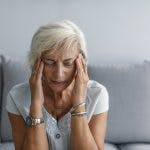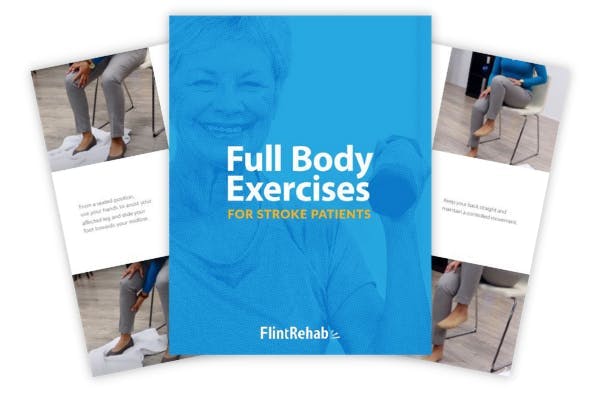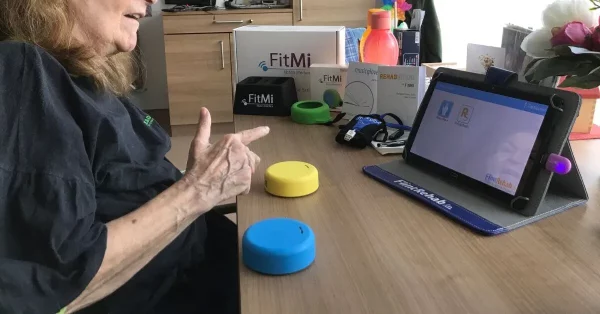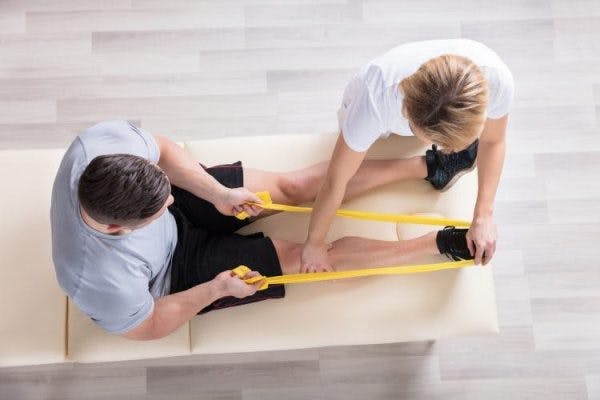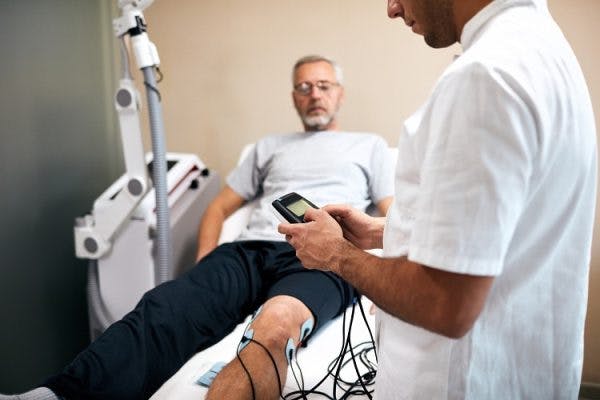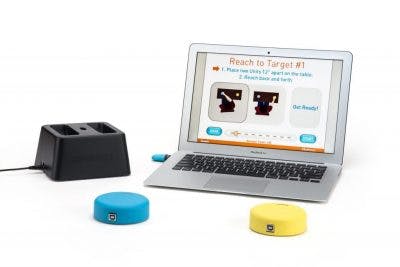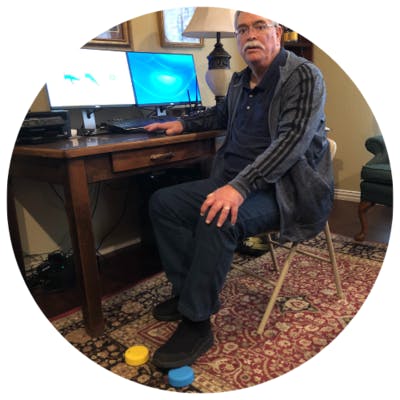Experiencing a headache after stroke can be concerning to both survivors and caregivers alike. What do headaches after stroke mean and what should you do?
In severe cases, a headache could be a sign of a stroke, making it necessary to seek emergency medical attention. Although not all cases are severe, it’s important to learn about headaches after stroke to know what to do if/when one occurs.
This article will discuss potential underlying causes of headaches after stroke, effective management techniques, and when to seek immediate medical attention. Use the links below to jump directly to any section.
What Is a Stroke?
While headaches may occur in conjunction with a stroke, this is not always the case. In order to fully understand the connection between headache and stroke, let’s first explore what happens during a stroke.
A stroke occurs when the supply of blood in the brain is compromised, depriving areas of oxygen-rich blood. As brain tissues are deprived of oxygen, cells begin to sustain damage. When this occurs, swift medical treatment is needed to stop the stroke, restore blood flow in the brain, and save the person’s life.
The most common signs of a stroke include weakness on one side of the body, facial drooping on one side of the face, and slurred speech. However, there are many signs of stroke that are not as common or well-known, including headache, vertigo, confusion, and sudden vision problems.
The Link Between Headache and Stroke
Headaches occur when pain-sensing nerves in the head, face and/or neck are activated. This may occur due to changes in blood vessel size and muscle tension, among other factors. Therefore, when blood vessel changes occur during a stroke, a headache may be triggered.
Studies show that roughly 18% of patients experience a headache during the onset of their stroke. The location of the headache is sometimes influenced by the area of the brain affected.
For example, when a stroke involves the carotid artery, which is the major artery in the neck that delivers blood to the brain, it can produce a headache in the forehead. When a stroke occurs in the vertebrobasilar system, which is responsible for supplying blood to the back of the brain, it can cause a headache at the back of the head.
Migraines, which are a severe type of headache, are more likely to be associated with stroke than more mild headaches. A specific type of migraine is related to an increased risk of stroke: ocular migraines.
These migraines occur with a visual aura, such as flashing lights or blind spots. Those who experience migraines with auras have been shown to have a 2.4 times higher risk of stroke as compared to those with migraines without auras.
Therefore, if your headache is severe and accompanied by an aura, it’s even more important to seek emergency medical attention.
While headaches can occur during the onset of a stroke, they can also occur months down the road. Studies show that individuals who experienced a headache during the onset of their stroke are likely to experience a persistent headache roughly 1-6 months after the initial injury.
Because it’s impossible to tell if a headache is a sign of another stroke or a symptom of the aftermath, it’s important to exercise caution and seek emergency medical attention.
Causes of Headaches After Stroke
Now that you know to seek emergency care if you or a loved one experience a headache after stroke, let’s discuss other potential causes. This information should not be used instead of seeking emergency medical treatment. Rather, it can help provide helpful information so that you can have an informed conversation with your doctor.
Other potential causes of a headache after stroke include:
1. Side Effects of Certain Medications
Some headaches may be a side effect of certain medications. If you believe your medication is causing a headache, it’s important to speak to your doctor to explore alternatives. Do not add, stop, or change medications before consulting your medical team.
Overusing medications such as pain medication can also result in headaches. This is because pain medication provides temporary relief for a few hours, but is often followed by a mild withdrawal that can induce pain.
2. Dehydration
Another potential cause of headaches after stroke is dehydration. Dehydration headaches occur when the body doesn’t have enough fluid, causing the tissue in your body (including your brain) to shrink. As the brain shrinks, it puts pressure on your nerves, causing a headache.
Because of the impact that dehydration has on the body and brain, it’s considered a stroke risk factor as well. When the body does not have enough fluid, it can cause blood vessels to narrow and blood to thicken, raising the risk of blood clots and those clots getting trapped in an artery in the brain.
Studies have shown that about 9% of stroke survivors are dehydrated when their stroke occurs, and dehydration is associated with worse outcomes. This is a preventable stroke risk factor that you can manage by drinking plenty of water throughout the day.
3. Withdrawal
Studies show that alcohol withdrawal and caffeine withdrawal can also cause headaches. Caffeine consumption causes blood vessels to narrow, which can reduce blood flow to the brain. When caffeine intake is reduced or stopped completely, it allows blood vessels to open up which increases proper blood flow. However, withdrawal headaches can occur as the brain adjusts to this change in blood flow.
Furthermore, alcohol intake suppresses normal neuronal activity in the brain. To compensate for this, the brain releases extra chemicals to maintain functions, and this overstimulation then becomes the “new normal” for the brain. When alcohol is removed, overstimulation may decrease which can result in discomfort and withdrawal headaches.
4. Hydrocephalus
A very serious cause of headaches after stroke is hydrocephalus. This condition involves a buildup of cerebrospinal fluid surrounding the brain and spinal cord. When the cerebrospinal fluid cannot drain properly it can increase the levels of fluid buildup. This can further result in nausea, imbalance, and thunderclap headaches, a very painful type of headache.
When hydrocephalus is present, surgical intervention may be required to drain the fluid away from the brain. The seriousness of this condition is another reason why you should seek emergency medical attention if you experience headaches after stroke.
5. Recurring Stroke
As you already know, in severe cases, headaches can be a symptom of the onset of a stroke. Therefore, if a headache comes suddenly, with or without other stroke-related symptoms, it’s important to seek immediate medical attention.
Because headaches are not as common as other stroke symptoms, a stroke may not be diagnosed in a timely manner. To prevent the chances of a misdiagnosis, it’s important to advocate for an MRI and/or CT scan. This can help doctors better identify a stroke if one is present.
Management Techniques for Headaches After Stroke
There are various management techniques your doctor may recommend to help reduce headaches after stroke. Treating the root cause of the headache is often the most effective way to find relief.
For example, when headaches are caused by dehydration, your doctor may recommend drinking plenty of water, consuming water-rich fruits and vegetables, and reducing your alcohol and caffeine intake. Although these recommendations may seem like common sense, it is still essential to consult your doctor for guidance.
For example, even though both alcohol and caffeine can contribute to dehydration, they should not be completely cut out of the diet immediately, as they can also cause withdrawal headaches when removed. Therefore, it’s important to consult with your doctor on how to modify your diet, because they can provide better guidance on what to consume and what to avoid.
While there are some pharmacological headache management options, it is essential to talk with your doctor about what would be best for you. Some common over-the-counter headache medications such as aspirin or ibuprofen should be avoided if you have a history of hemorrhagic stroke because they can increase the risk of bleeding. On the other hand, if you suspect that some of your medication is contributing to headaches after stroke, talk to your doctor to explore potential alternatives.
Managing stress can also help to relieve headaches. Stress is a contributing factor to both headaches and stroke, as well as a common reaction to learning to cope with changes after a stroke. If you tend to experience headaches during times of stress, find healthy activities to help with stress relief, such as meditation and exercise.
In addition to stress, headaches and migraines can be triggered by fatigue, a common effect of a stroke. Therefore, getting enough rest is important to help reduce fatigue and migraines. Talk to your doctor to explore your options if you’re having trouble sleeping due to sleep apnea or other medical conditions.
While these tips can help reduce headaches momentarily, it’s important to obtain a proper diagnosis and treat the root cause. Consult with your doctor about the types of headaches you experience, and they will provide you with the best course of treatment that is suitable and safe for you.
Understanding the Connection Between Headache and Stroke
Headaches after stroke should be taken very seriously because they could be a sign of another stroke. Although this is not a common stroke symptom, about 18% of individuals experience a headache during their stroke.
Not all headaches after stroke signify a recurrent stroke, though. Sometimes they are a result of dehydration, side effects from certain medication, or even caused by caffeine withdrawal. To find the exact cause, it’s essential to seek emergency medical treatment and obtain an accurate diagnosis.
We hope this article helped you understand the connection between headache and stroke so that you can have an informed conversation with your doctor.


